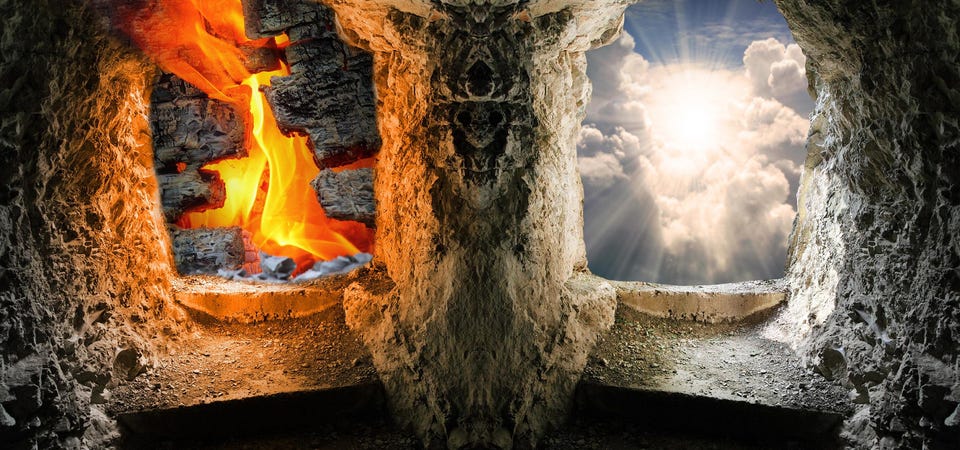Science Believing In Supernatural Punishments Affects Us More Deeply Than We Think Mark Travers Contributor Opinions expressed by Forbes Contributors are their own. I write about the world of psychology. New! Follow this author to improve your content experience.
Got it! Jul 4, 2022, 11:49am EDT | Share to Facebook Share to Twitter Share to Linkedin Psychologists explain how your supernatural beliefs may be controlling you. getty A new study published in Current Opinion in Psychology examines how our beliefs in heaven and hell, and other ‘supernatural punishment’ narratives, can override our logic and, to some extent, dictate our behavior. The paper suggests that there are pros and cons to these common belief structures and offers a reason for why they are so prevalent in cultures around the world.
“People endorse supernatural narratives, like beliefs in hell or moralistic gods, in an attempt to make each other more cooperative,” explains psychologist Manvir Singh of the Institute of Advanced Study in Toulouse, France. “Furthermore, we adopt them because they are cognitively ‘sticky’ — that is, our cognitive biases make supernatural narratives especially compelling. ” According to Singh and co-author Léo Fitouchi, supernatural beliefs can control us because they bypass what they term ‘epistemic vigilance,’ or the lens through which humans evaluate the reliability of information communicated by others.
“If I tell you, for example, that a given food item is poisoned, I may be providing true and useful information or I may be trying to manipulate you to keep more food for myself,” says Fitouchi. “So, you need psychological mechanisms to evaluate whether the information other people provide is true or not. ” Both Singh and Fitouchi highlight that negatively weighted beliefs such as the threat of punishment are most likely to bypass our epistemic vigilance.
“Studies suggest that people are predisposed to believe that wrongdoers are more likely to suffer misfortunes — which is exactly what supernatural punishment beliefs claim,” informs Fitouchi. “People are also more likely to accept threatening beliefs, such as warnings against eternal damnation in hell. ” MORE FOR YOU New Research Finds A Connection Between Domestic Violence And These Two Personality Disorders This Scientist Helps Andean Forests And Ecuador’s Women In STEM Exceptional Fossil Preservation Suggests That Discovering Dinosaur DNA May Not Be Impossible Taking this into account, Singh and Fitouchi demonstrate that supernatural punishment beliefs are especially prevalent in cultures that possess a strong social desire to control others.
Typically, these cultures exhibit what the researchers term ‘cultural tightness’ — meaning they have rigid social norms. Although this may sound bleak, their findings reveal that the belief in supernatural punishment can produce positive outcomes for society. “Supernatural punishment beliefs promote cooperation,” explains Singh.
“They often involve forces that monitor our behavior and they make wrongdoing sufficiently costly to counterbalance any benefits people otherwise get from behaving badly. ” For example, in Indonesia, indigenous people believe in a water spirit that will attack anyone who does not share meat. This belief encourages people to share food with others, increasing cooperation in the tribe.
The more cognitively appealing the belief, the higher the chance it will bypass one’s epistemic vigilance and become an actuality. “To explain the spread of religious beliefs — or any cultural products, for that matter — we need to think more about their strategic utility and cognitive appeal,” concludes Fitouchi. A full interview with Manvir Singh and Léo Fitouchi discussing this new research can be found here: How your supernatural beliefs are shaping your thoughts Mark Travers Editorial Standards Print Reprints & Permissions.
From: forbes
URL: https://www.forbes.com/sites/traversmark/2022/07/04/believing-in-supernatural-punishments-affects-us-more-deeply-than-we-think/



